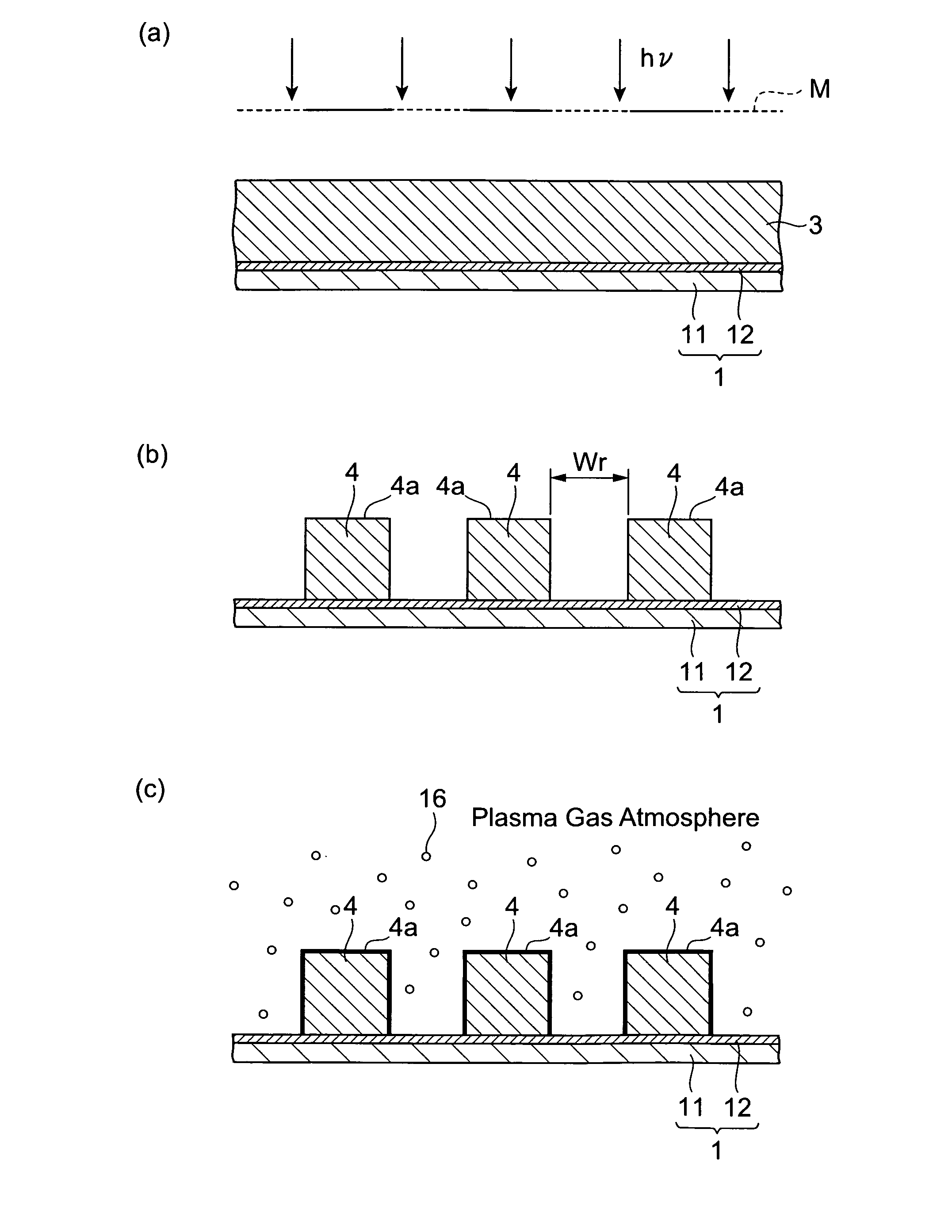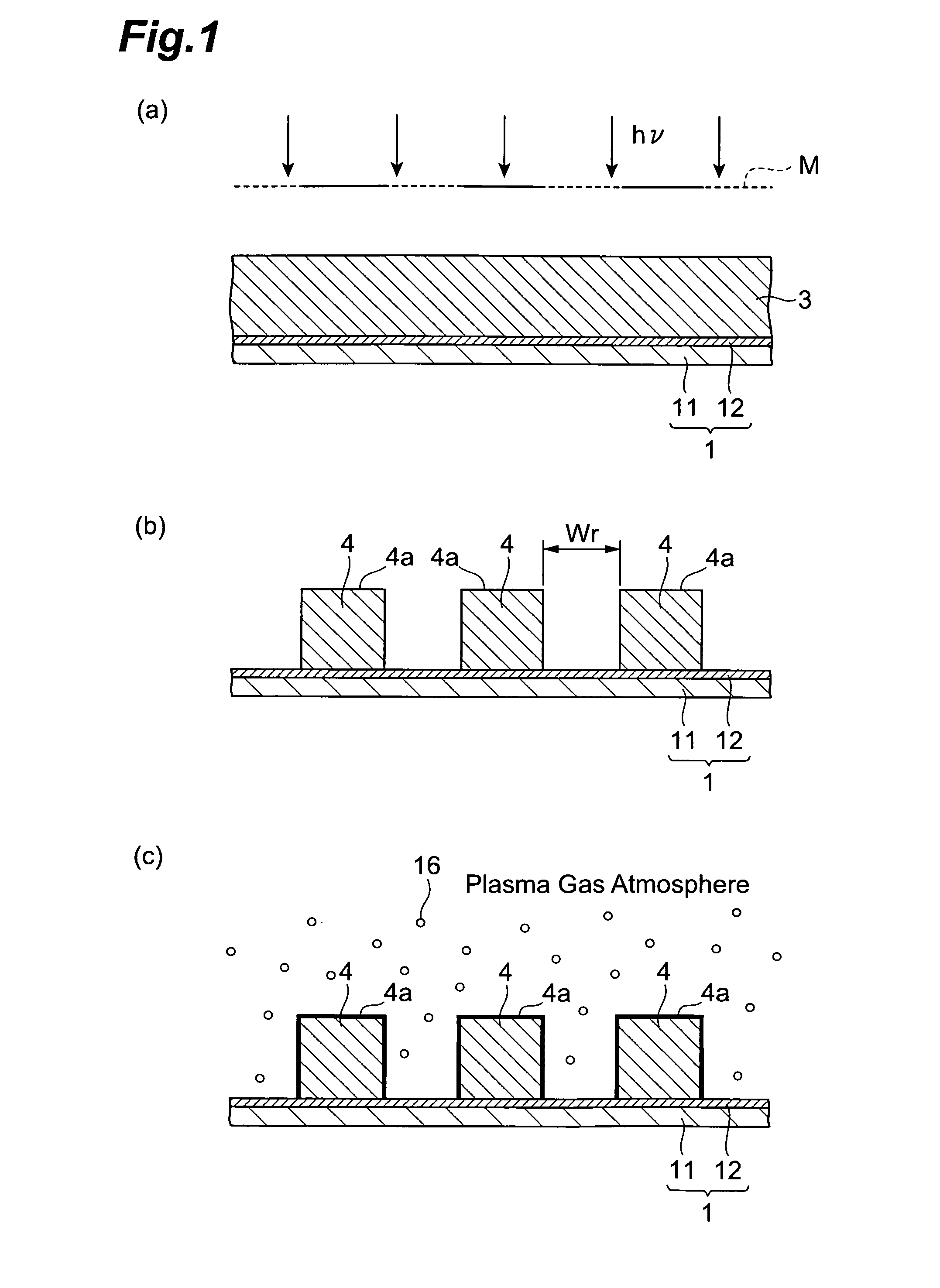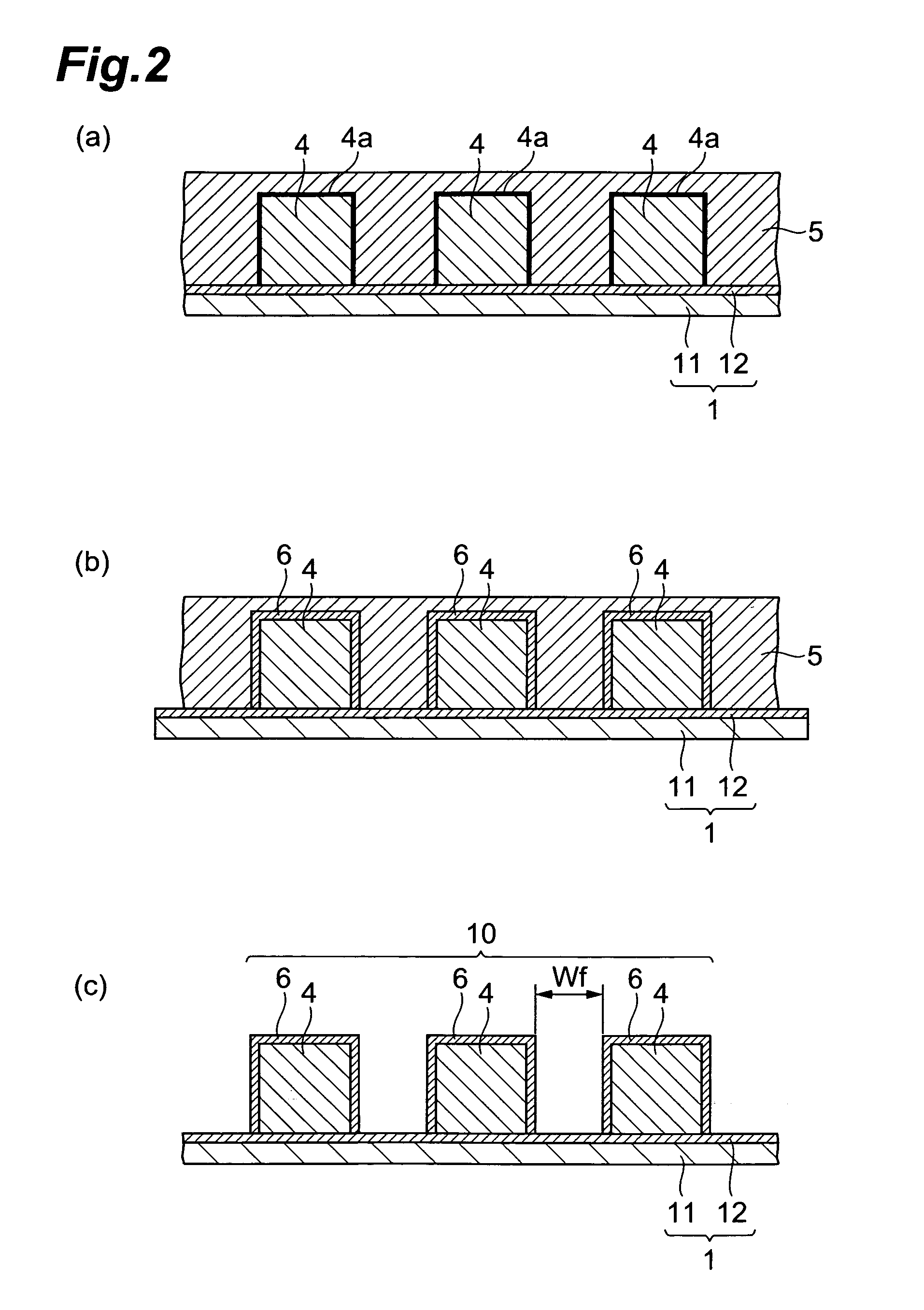Resist pattern forming method, thin-film pattern forming method, and microdevice manufacturing method
a technology of resist pattern and forming method, which is applied in the direction of photosensitive material processing, photomechanical equipment, instruments, etc., can solve the problems of insufficient achievement of conventional relacs method, and achieve the effect of high density
- Summary
- Abstract
- Description
- Claims
- Application Information
AI Technical Summary
Benefits of technology
Problems solved by technology
Method used
Image
Examples
examples
[0063]The present invention will now be explained more specifically.
[0064]Preparation of Resin Composition
[0065]A resin composition was obtained by adding 20 g of pure water to 160 g of an aqueous solution containing 5 wt % of polyvinyl acetal KW3 manufactured by Sekisui Chemical Co., Ltd., 20 g of an aqueous solution containing about 10 wt % of (N-methoxymethyl)methoxyethyleneurea, 20 g of (N-methoxymethyl)hydroxyethyleneurea, and 20 g of N-methoxymethylurea, and stirring and mixing them for 6 hr at room temperature.
[0066]The aqueous solution containing 5 wt % of polyvinyl acetal KW3 was obtained by adding 400 g of pure water to 100 g of an aqueous solution containing 20 wt % of polyvinyl acetal resin S-LEC KW3, and stirring and mixing them for 6 hr at room temperature by using a 1-L measuring flask. The aqueous solution of (N-methoxymethyl)methoxyethyleneurea was obtained by adding 860 g of pure water and 40 g of IPA (isopropanol) to 100 g of (N-methoxymethyl)methoxyethyleneurea, ...
examples 1 to 6
[0067]A thin film of Ni (having a thickness of 100 nm) was formed by sputtering on a surface of an Si substrate having a diameter of 6 inches, so as to yield a substrate (hereinafter referred to as “Ni substrate”) comprising the Si substrate and Ni thin film. Then, a patterned resist layer was formed on the Ni substrate as follows:
[0068]Chemically-amplified polyhydroxystyrene-based resist AZ DX5105P (product name; manufactured by AZ Electronic Materials Co., Ltd.), which was a resist for a wavelength of 248 nm (KrF excimer laser) and contained an acid-generating material adapted to generate an acid upon heating, was applied by spin-coating onto the Ni substrate such as to yield a thickness of 500 nm after prebaking. The applied resist was prebaked by heating for 90 sec at 100° C. by a hotplate, then cooled to room temperature by a cooling plate, and thereafter exposed to light through a mask by using a DUV stepper (NSR-EX14D (product name) manufactured by Nikon Corp., NA=0.65, σ=0.7...
PUM
| Property | Measurement | Unit |
|---|---|---|
| wavelength | aaaaa | aaaaa |
| wavelength | aaaaa | aaaaa |
| thickness | aaaaa | aaaaa |
Abstract
Description
Claims
Application Information
 Login to View More
Login to View More - R&D
- Intellectual Property
- Life Sciences
- Materials
- Tech Scout
- Unparalleled Data Quality
- Higher Quality Content
- 60% Fewer Hallucinations
Browse by: Latest US Patents, China's latest patents, Technical Efficacy Thesaurus, Application Domain, Technology Topic, Popular Technical Reports.
© 2025 PatSnap. All rights reserved.Legal|Privacy policy|Modern Slavery Act Transparency Statement|Sitemap|About US| Contact US: help@patsnap.com



